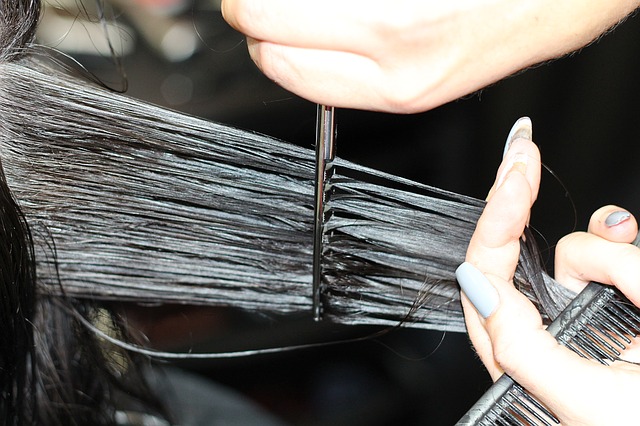“Lice prefer clean hair because the smell of shampooed hair is more appealing,” is one of the most prevalent lice misconceptions. The truth is that those tiny little parasites will not differentiate between clean and less clean, long or short, natural or colored hair.
Table of Contents
However, how do lice establish a sense of familiarity within your head?
When in touch, lice crawl head-to-head. They are incapable of flying, jumping, or swimming. They are limited to a rapid pace of walking. They are also spread via anything that come into contact with the head, such as hats, brushes, and bed linens. It is conceivable, albeit rare, to discover lice in your brows or eye lashes. They are classified differently in the remainder of the body.
Head lice prefer unclean hair, according to a popular myth
When it comes to hair cleanliness, lice are not discriminate. They merely require any human hair, regardless of how clean or greasy it is. Lice live on minute amounts of human blood and use the hair as a home. Additionally, regularly washing your hair in an attempt to remove lice will fail. They can survive hours of submersion in water and maintain a fairly secure grip on the hair follicle.
Myth: To eliminate lice, you must clean everything
This is a widespread misunderstanding that has everyone hurriedly cleaning their homes from top to bottom and washing and rewashing their bedding. Lice do not reside in homes, preferring to live on human heads. Because lice can only survive for 48 hours or fewer away from the human head, only items that have come into touch with the heads of humans must be cleansed. Bedding, hairbrushes/combs, plush animals on the bed, and any headgear, scarves, or helmets worn recently should all be cleaned.
Is it true that head lice prefer hair that is clean?
No, both clean and unclean hair attracts head lice. Few things are more irritating and difficult to eradicate than head lice; they are generally despised, despite the medical consensus that they are merely a nuisance. Despite the annoyance and stress associated with a head lice infestation, many of us find solace in the fact that lice prefer clean hair to nest in.
Lice prefer to live in filthy hair
Is it cleaner or dirtier hair that head lice prefer? A head louse, on the other hand, has only one preference: a warm human host. Catching head lice has nothing to do with whether your hair is unclean or clean and washing your hair will not eliminate head lice or nits. During washing, a head louse can expertly cling to the hair follicles, and the nit eggs adhere to the hair shaft.
Head lice prefer hair that is free of dandruff
Head lice are attracted to all types of hair, whether it is clean or unclean. Intriguingly, it was once believed that head lice preferred only unclean hair. It appears as though the myth has been altered in order for those with head lice to claim to have perfectly clean hair.
Are Lice attracted to clean or unclean hair?
Every parent’s worst nightmare is to have their child infected with head lice. Any mother will get the heebie-jeebies if she discovers bugs in her child’s hair. However, the societal stigma attached to lice as solely belonging to “filthy people” adds another layer of embarrassment and shame to everyone. So, is it true that lice prefer clean or unclean hair?
The truth is that lice like both unclean and clean hair. What they really want is a safe spot to lay their eggs and a constant source of blood. It makes no difference if you are overweight, unattractive, or beautiful, wealthy or impoverished, clean or filthy anyone can acquire head lice!
Which type of hair do lice prefer: clean or dirty? Why?
When given a choice, lice will almost always choose clean hair to unclean hair.Although no scientific research has been conducted on the subject of “clean vs. The following are the most generally held theories regarding “filthy” hair:
1: Someone with filthy hair may have an odour or be so greasy that it masks their lice odour.
2: Hair that is very oily or greasy makes lice’s grip on hair more difficult.
Theory #1: Someone with unclean hair may be so odoriferous or greasy that it masks their lice odour
The odour of your blood attracts lice. Did you realize that those little creatures are not only establishing a home on your child’s skull, but are also sucking blood? True, indeed. Multiple times a day, lice feed on human blood. Additionally, lice, like mosquitos, like certain types of blood.Lice do not just happen to find their way onto a person’s head. They are drawn to the odour of blood. When they detect suitable blood, they do not crawl; they scurry to that head.
The hypothesis that someone with filthy hair is so stinky or oily that they can disguise the scent of their blood from lice is plausible, this is especially true if some of the filth and odour in the dirty hair is repulsive to lice. In reality, if your hair is so filthy that lice are unable to detect your blood scent, you probably smell awful to humans as well, and they most likely avoid you as well.
Theory #2: Excessively oily, greasy hair makes lice’s grip on hair tough
Lice are superb hair “tightrope walkers,” but oil that rope and it becomes much more difficult to navigate. Each of their little legs is equipped with claws that are meant to cling to and not fall off hair strands. It makes sense that overly oily, greasy hair would make it more difficult for lice to hold the hair. It’s like if you’re applying grease to the tightrope. Which floor is easier to walk on, a greasy one or a clean one? However, living with overly oily hair is not a trade-off worth making in order to avoid head lice.


